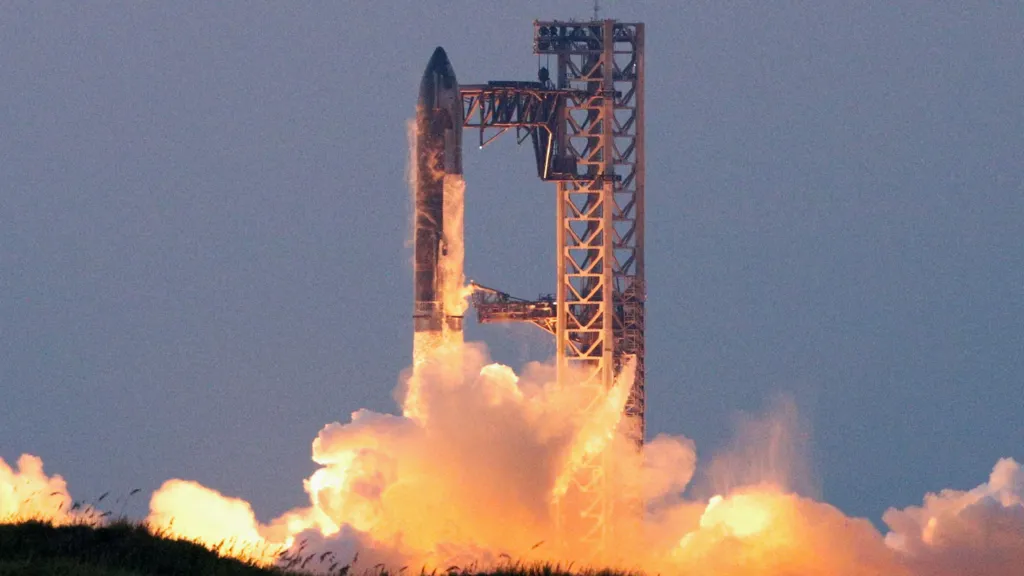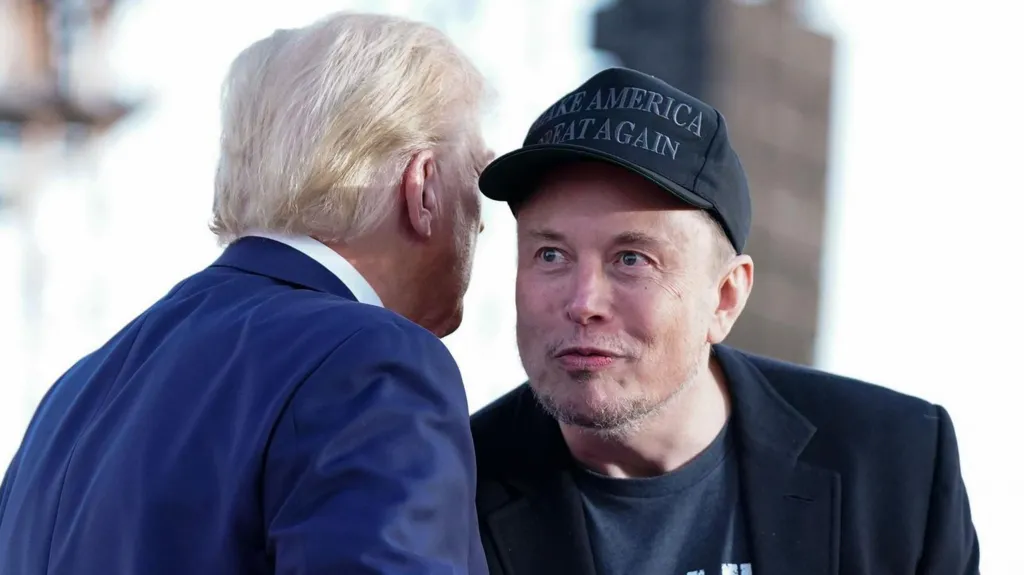Billionaire Elon Musk has been appointed to lead President-elect Donald Trump’s newly established Department of Government Efficiency (Doge).
In a social media statement, Trump announced that Musk, alongside former Republican presidential candidate Vivek Ramaswamy, will focus on "dismantling government bureaucracy, cutting excessive regulations, reducing wasteful spending, and restructuring federal agencies."
This role aligns with Musk’s extensive experience as a business leader, which he has advocated for publicly in recent months. It is also expected to grant Musk significant influence over government policy and the regulatory landscape in which his companies operate.
Speaking at a Trump rally in October, Musk stated his belief that the U.S. government’s budget could be trimmed by "at least" $2 trillion from its current $6.5 trillion. He has also frequently suggested that the federal workforce could be substantially downsized.
Ramaswamy, on the other hand, has proposed eliminating several federal agencies, including the Department of Education, the Nuclear Regulatory Commission, the Internal Revenue Service, and the FBI.
From Twitter to the streamlined X
Musk’s management style in his own companies may offer clues about his approach to cutting government waste.
In October 2022, he acquired the social media platform Twitter—renaming it X—in a $44 billion deal. Musk said he bought the platform to end its content moderation policies, which had led to bans for users violating hate speech and disinformation rules. Among those reinstated was Donald Trump, who had been banned after the January 2021 Capitol riot for claiming the 2020 election was stolen.
Following his takeover, Musk made sweeping changes, reducing X’s workforce from around 8,000 to 1,500. He later explained to the BBC that this decision aimed to ensure the company’s survival: “If the whole ship sinks, then nobody’s got a job.”
As advertisers left due to the platform’s relaxed speech policies, Musk introduced monetization strategies to bolster revenue. He turned blue verification checkmarks into a subscription service, linking advertising revenue for "verified" users to the number of interactions their posts generated, which also influenced their visibility. Musk also launched Grok, a paid AI chatbot to assist users with content creation.
However, these shifts brought about some unexpected challenges.
X has introduced gold or silver verification ticks for brands and official accounts to distinguish them from imposters after several, including the BBC, declined to pay for the badges. This shift has left blue ticks to indicate only that an account is subscription-based.
The platform's revenue-sharing model has also unintentionally opened the door for bot farms to profit by generating automated content to boost interactions. Musk has stated that his team regularly purges bot accounts to combat this issue.
Critics argue that these changes have amplified hate speech and misinformation on the platform, though Musk maintains that X remains politically neutral.
"Elon Musk, as a serial entrepreneur, has been relentless in seeking efficiency improvements across his businesses, most notably at Tesla and X," says Thomas Gift, professor of U.S. politics at University College London. Gift notes that while Musk’s primary role will be "cutting through the red tape of the federal government," it will also afford him substantial influence in the administration.
"Although Musk's role in the Department of Government Efficiency is informal, he undoubtedly has Trump’s ear—at least for now," Gift adds.
Challenging Regulatory Barriers
Musk’s advocacy for a “Doge” department alludes to the popular Shiba Inu meme that inspired the cryptocurrency Dogecoin, which he often references online.
Yet these calls likely reflect frustrations Musk has faced with U.S. regulations affecting his businesses, such as Tesla and SpaceX. Tesla has faced government accusations of blocking unionization efforts, despite Musk’s claims that he’s "not against all unions." He argues that the auto workers' union has historically hampered productivity to the detriment of a company's competitiveness. Tesla remains one of the few major automakers where union representation isn’t recognized.
In September, Musk also threatened legal action against the Federal Aviation Administration after it proposed a $633,000 fine on SpaceX for alleged licensing violations related to rocket launches from Cape Canaveral. Musk called the proposed penalty an instance of "regulatory overreach."
With SpaceX’s Starship program, Musk aims to make Mars colonization possible, but he has warned that this vision can only be realized if “bureaucracy” doesn’t stand in the way. He has argued that creating a “Doge” department is the “only path to extending life beyond Earth.”
Are Musk’s motivations tied to his business interests in the U.S.? Professor Thomas Gift believes Musk’s regulatory concerns are undoubtedly tied to his enterprises, but that isn’t the whole story: “Musk has taken significant personal and political risks in backing Trump, and much of his rhetoric seems to reflect an ideological commitment to causes he believes in.
 |
| Elon Musk says cutting red tape is "the only path" to colonsing other planets |
Recognition for Loyalty
Musk reportedly donated $200 million (£157 million) to Trump’s 2024 presidential campaign and appeared at several of his rallies.
Although the South African-born billionaire cannot run for president due to his lack of U.S. citizenship by birth—something that has frustrated other prominent figures in politics—Musk still holds the potential to influence U.S. policy. As a result, Trump now has a loyal adviser he can turn to.
"Trump aims to surround himself with loyalists in his new administration, and no one has been more steadfast than Musk since he endorsed Trump," says Professor Gift. "Not only did Musk fully support Trump both personally and financially during the campaign, but he has also become a trusted adviser on a wide range of issues, from technology policy to the war in Ukraine."
A clear indication of the influence Musk may gain for his loyalty came after the election when he participated in a call between Trump and Ukrainian President Volodymyr Zelensky. Given that the war in Ukraine will be a central foreign policy issue when Trump assumes office, Musk’s role in these discussions signals his growing importance.








0 মন্তব্যসমূহ